All Formats & Editions

On Obligations: de Officiis
Cicero wrote On Obligations (De Officiis) in late 44 BC after the assassination of Julius Caesar to provide principles of behavior for aspiring politicians. It has subsequently played a seminal role in the formation of ethical values in western Christendom. Adopted by the fourth-century...
![On Duties [Latin] 0674990331 Book Cover](https://i.thriftbooks.com/api/imagehandler/l/ACB1C7E3F354E3DDA89DDC9A76BBA33D9A6324FF.jpeg)
On Duties [Latin]
The ethics of a statesman.

On Obligations : De Officiis
Cicero wrote On Obligations (De Officiis) in late 44 BC after the assassination of Julius Caesar to provide principles of behavior for aspiring politicians. It has subsequently played a seminal role in the formation of ethical values in western Christendom. Adopted by the fourth-century...
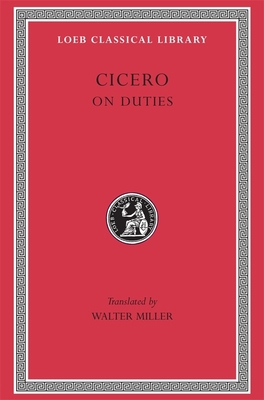
On Duties : C. Philosophical Treatises
Cicero (Marcus Tullius, 10643 BCE), Roman lawyer, orator, politician and philosopher, of whom we know more than of any other Roman, lived through the stirring era which saw the rise, dictatorship, and death of Julius Caesar in a tottering republic. In his political speeches especially...
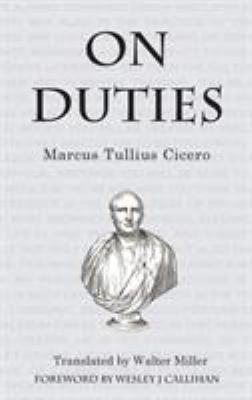
On Duties
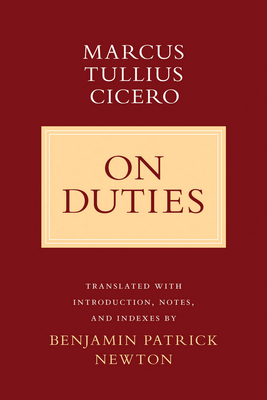
On Duties
Benjamin Patrick Newton's translation of Cicero's On Duties is the most complete edition of a text that has been considered a source of moral authority throughout classical, medieval, and modern times. Marcus Tullius Cicero was a preeminent Roman statesman, orator,...
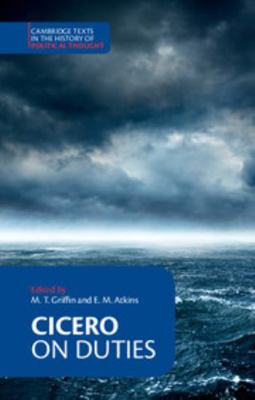
Cicero: On Duties
De Officiis (On Duties) is Cicero's last theoretical work and contains his analysis, in a Greek theoretical framework, of the political and ethical values of the Roman governing class in the late Republic. It has often been treated merely as a key to the Greek philosophical works...
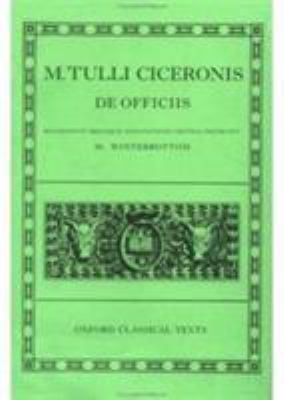
de Officiis
The De Officiis ("On Duties"), written hurriedly not long before Cicero's death, has always commanded attention. While it is based on the moral philosophy of the Greek Stoic Panaetius, Cicero adapted the material to his audience in such a way that the book stands as an invaluable...

On Moral Duties
Marcus Tullius Cicero (106-43 BC) was a Roman lawyer and statesman who was active during the late Republic in resisting the rise of dictatorship. His polished style of writing Latin greatly influenced later generations.

On Duties
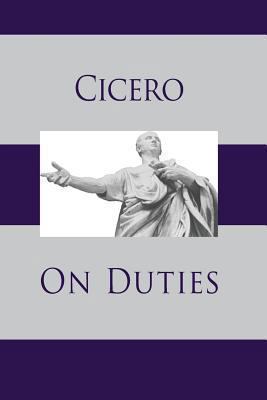
On Duties

On Obligations: de Officiis
Cicero wrote On Obligations (De Officiis) in late 44 BC after the assassination of Julius Caesar to provide principles of behavior for aspiring politicians. It has subsequently played a seminal role in the formation of ethical values in western Christendom. Adopted by the fourth-century...

On Duties: De Officiis
De Officiis (On Duties or On Obligations) is a treatise by Marcus Tullius Cicero divided into three books, in which Cicero expounds his conception of the best way to live, behave, and observe moral obligations.De Officiis was written in October-November 44 BC, in under four weeks...

On Duties

Cicero: On Duties

De Officiis;
![De officiis [Latin] 1502854309 Book Cover](https://i.thriftbooks.com/api/imagehandler/l/80F85197E1BCA0249B16439DCAC4E4F5F8254A09.jpeg)
De officiis [Latin]
![De officiis. With an English translation by Wal... [Latin] 101781421X Book Cover](https://i.thriftbooks.com/api/imagehandler/l/28BC58C64BB5B8EA7F9AAF7D3B6C0798B54276D5.jpeg)
De officiis. With an English translation by Wal... [Latin]
This work has been selected by scholars as being culturally important, and is part of the knowledge base of civilization as we know it. This work is in the "public domain in the United States of America, and possibly other nations. Within the United States, you may freely...

de Officiis (Classic Reprint)
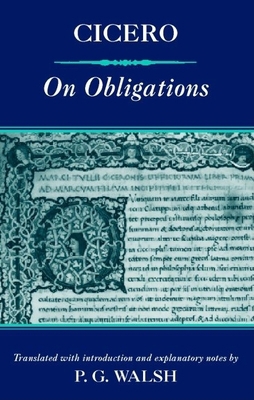
On Obligations
On Obligations, composed by Cicero in late 144 BC following the assassination of Julius Caesar, recommends ideals of conduct to the young Roman who aspires to a political career. It explores the apparent tensions between honorable conduct and expediency in public life. The principles...
![Vom rechten Handeln [German] 3050055413 Book Cover](https://i.thriftbooks.com/api/imagehandler/l/07D964C9E326F69F375E5B79EDE1313B469E6FC0.jpeg)
Vom rechten Handeln [German]
Die drei B cher "Vom rechten Handeln" besch ftigen sich mit dem Verh ltnis zwischem dem "Sittlichen" (honestum) und dem "N tzlichen" (utile). Cicero vertritt die These, dass beide Begriffe "von Natur aus" identisch sind. Einen Konflikt zwischen dem Sittlichen, d.h. den aus den...
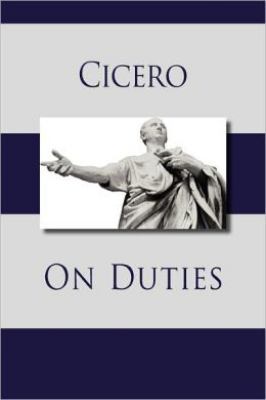
On Duties

De Officiis;
This work has been selected by scholars as being culturally important, and is part of the knowledge base of civilization as we know it. This work is in the "public domain in the United States of America, and possibly other nations. Within the United States, you may freely...
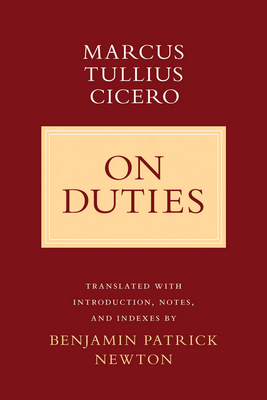
On Duties
Benjamin Patrick Newton's translation of Cicero's On Duties is the most complete edition of a text that has been considered a source of moral authority throughout classical, medieval, and modern times. Marcus Tullius Cicero was a preeminent Roman statesman, orator,...
![De officiis. With an English translation by Wal... [Latin] 1361762322 Book Cover](https://i.thriftbooks.com/api/imagehandler/l/547B9748F95E5871B6699DA873B59279B2848086.jpeg)



